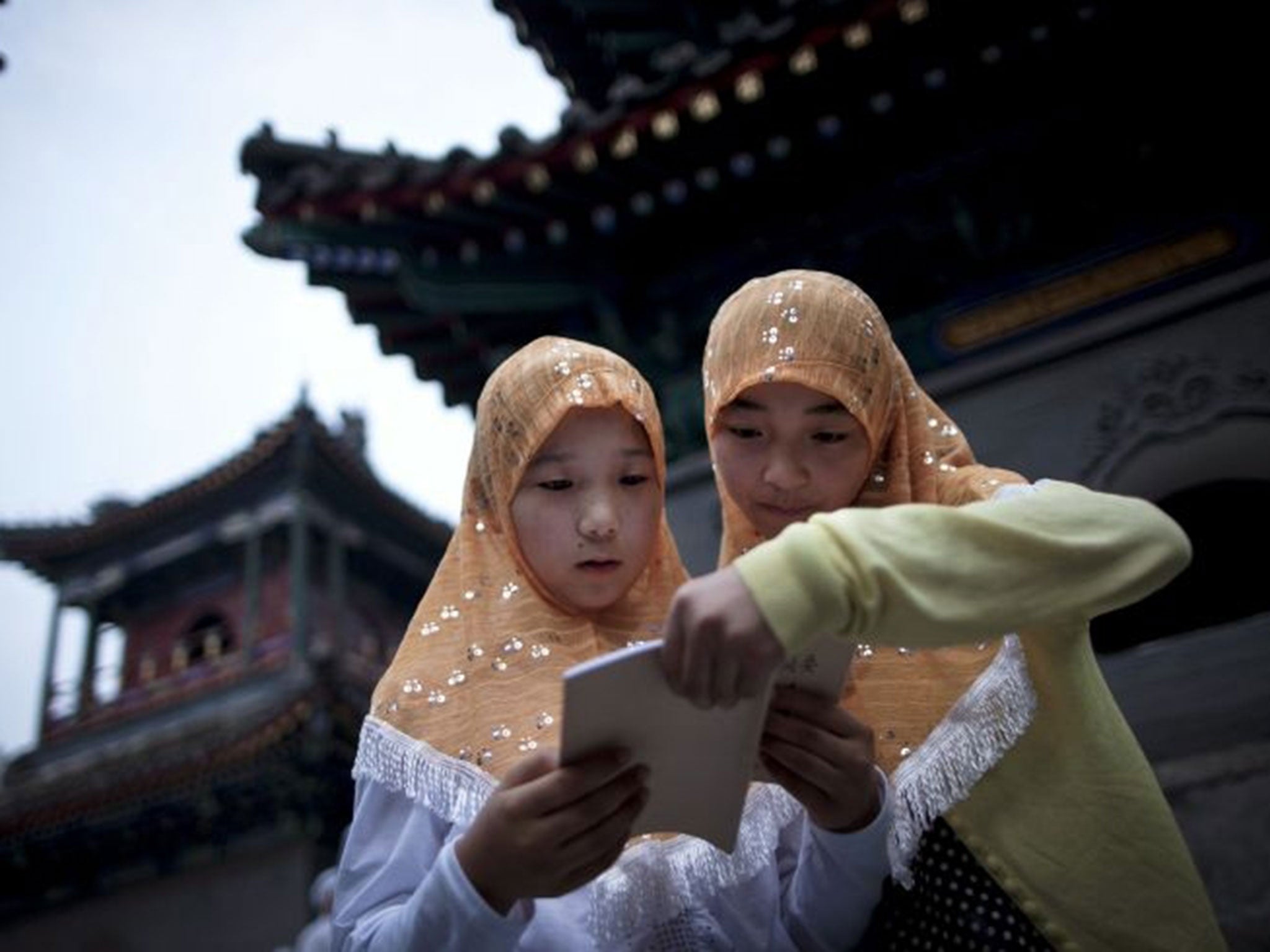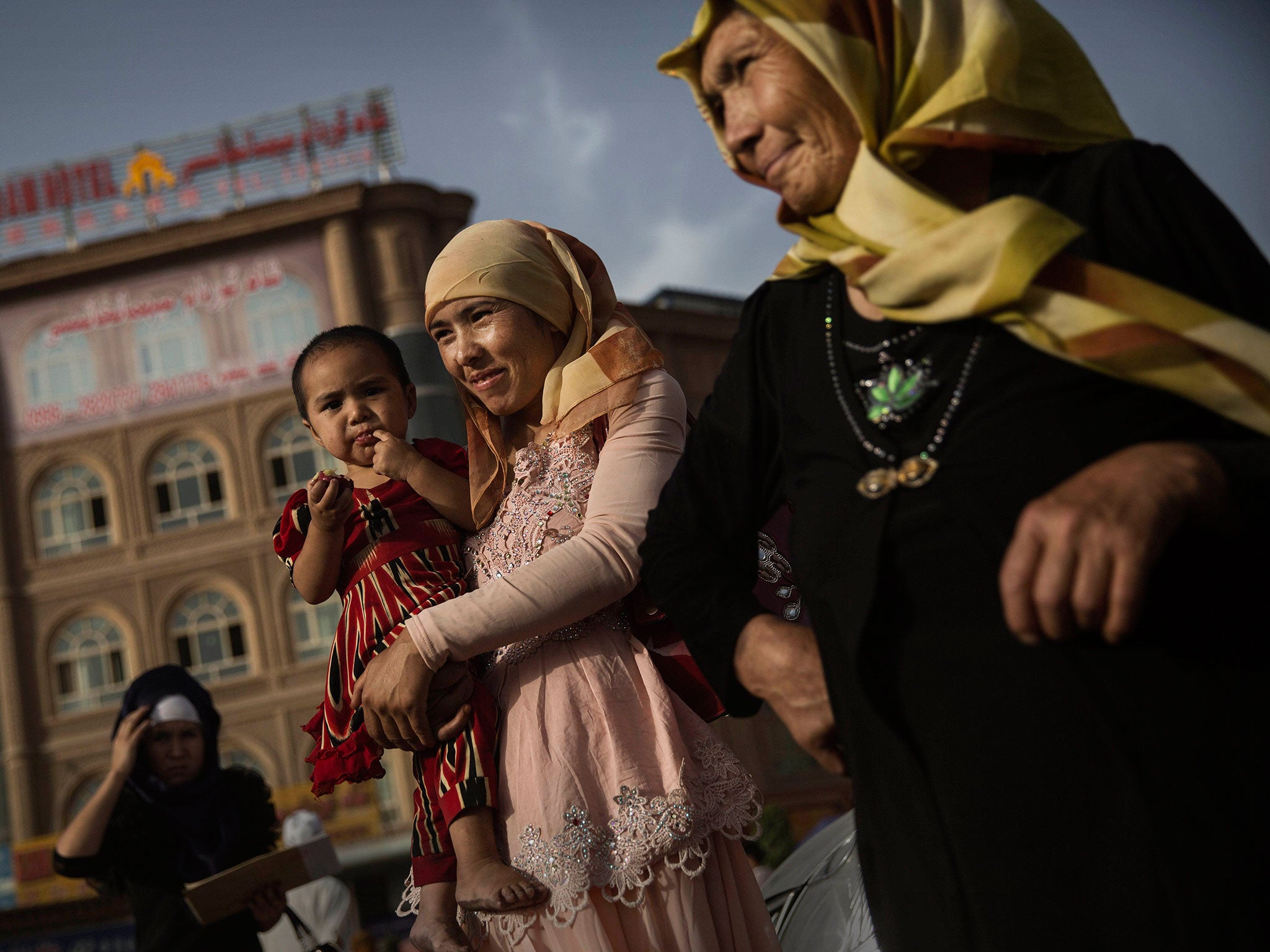China bans parents from 'luring children into religion' in Muslim province
Parents cannot 'organise, lure or force minors into attending religious activities', rules state

Your support helps us to tell the story
From reproductive rights to climate change to Big Tech, The Independent is on the ground when the story is developing. Whether it's investigating the financials of Elon Musk's pro-Trump PAC or producing our latest documentary, 'The A Word', which shines a light on the American women fighting for reproductive rights, we know how important it is to parse out the facts from the messaging.
At such a critical moment in US history, we need reporters on the ground. Your donation allows us to keep sending journalists to speak to both sides of the story.
The Independent is trusted by Americans across the entire political spectrum. And unlike many other quality news outlets, we choose not to lock Americans out of our reporting and analysis with paywalls. We believe quality journalism should be available to everyone, paid for by those who can afford it.
Your support makes all the difference.The Chinese government is calling on people to report their neighbours, friends and relatives for “luring minors into religious activities” in a province home to the country’s largest Muslim population.
New education rules coming into force in Xinjiang on 1 November threaten to remove children from their parents’ care and send them to “receive rectification” at specialist schools.
The autonomous region, which borders Pakistan and Muslim-majority nations including Kazakhstan, is home to the greatest concentration of Muslims in China because of its significant ethnic Uighur population.
But restrictions are enforced on the practice of Islam, as well as China’s four other officially recognised religions, and the new rules threaten further punishment.

They say parents and guardians cannot “organise, lure or force minors into attending religious activities”, according to the state-controlled Xinjiang Daily.
Neither should they promote “extremist” beliefs in children, nor force them to dress in “extremist clothing” or other symbols, the newspaper said, echoing the tone of previous bans on Islamic dress including beards for men and headscarves for women.
“Any group or person has the right to stop these kinds of behaviours and report them to the public security authorities,” the rules said.
If parents are unable to remove their children from “harmful extremist or terrorist ways” and they cannot continue to study at their existing schools, they can apply to have their children sent to specialist schools to “receive rectification”.
Religious activities are banned in schools, which must guide students away from separatism and extremism, to create an environment that “esteems science, seeks the truth, refuses ignorance (and) opposes superstition”, the rules continue.
While China officially guarantees freedom of religion, children are not supposed to participate in religious activity.
The Communist government restricts religious practice to five officially recognised faiths and only in officially approved premises, auditing the activities, employee details, and financial records of religious bodies.
Other religious groups are classified as “evil cults”, allowing authorities to imprison leaders and criminalise followers.
Officials have destroyed Christian churches under laws against “illegal structures” and detained those protesting against the demolitions, while authorities have cracked down on underground Islamic schools, or madrassas, in Xinjiang in recent years.
Hundreds of people have died in the province over recent years in unrest blamed by Beijing on Islamist militants and separatists, although human rights groups say the violence is more a reaction to repressive Chinese policies.
The government strongly denies committing any abuses in Xinjiang and insists the legal, cultural and religious rights of the Uighur people are fully protected.
But many resent restrictions on their culture and religion, and complain they are denied economic opportunities in favour of Han Chinese.
Uighur activists who have campaigned for better treatment of their people have been imprisoned, the most prominent being economics professor Ilham Tohti, who was jailed for life in 2014 on separatism charges.
He was awarded a prestigious annual human rights award on Tuesday, drawing an angry response from Chinese officials who said he was a criminal who praised terrorists.
Additional reporting by Reuters
Join our commenting forum
Join thought-provoking conversations, follow other Independent readers and see their replies
Comments